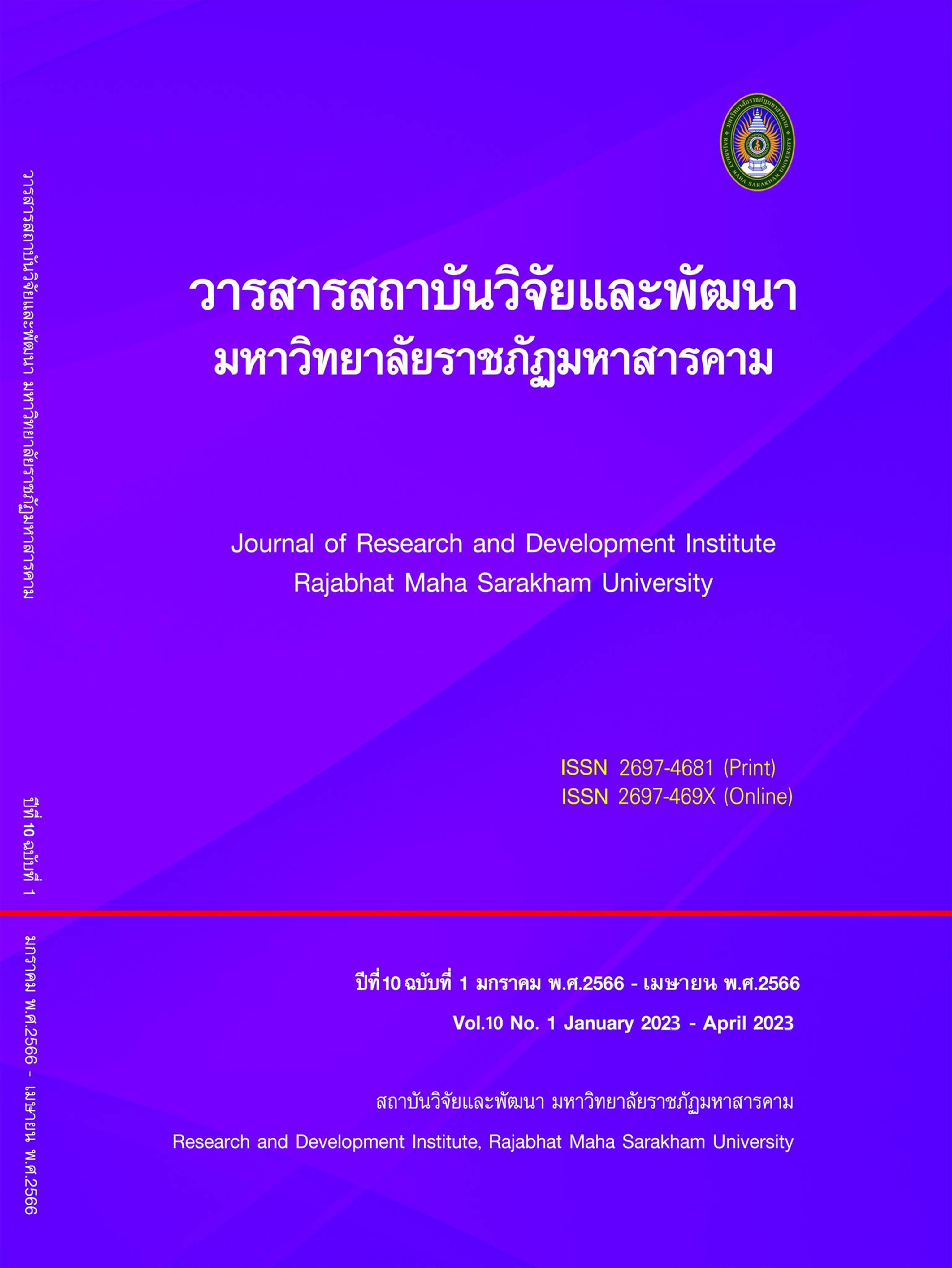Evaluation of Master of Education Program in Educational Administration (Revised Curriculum 2562 B.E.), Nakornrachasima College
Keywords:
Curriculum evaluation, Educational Administration Program of Nakornrachasima CollegeAbstract
The purposes of this study were 1) to evaluate the Master of Education Program in Educational Administration.(Revised Curriculum 2562 B.E.), Nakornrachasima College. 2) to study the suggestion of the stakeholders for the Master of Education Program in Educational Administration.(Revised Curriculum 2562 B.E.), Nakornrachasima Collegedevelopment. The study was comprised 4 factors context, input, process and product. To fulfill the objectives a questionnaire was applied for collecting data
consisted of 79 students,14 fulltime lecturers, 17 lecturers and 64 graduate users. The results of study were as follows:
1) The evaluation results of the the Master of Education Program in Educational Administration.(Revised Curriculum 2562 B.E.), Nakornrachasima College :
(1) The contexts were at very high suitable level ; objectives and subjects of curriculum were correspondent to all national, college and faculty’s vision and also correspondent to the graduate users’ need.
(2) The input were at very high suitable level ; learner feature, lecturers’ skill and attribute, educational planning.
(3) The process were at very high suitable level ; curriculum administration, education resource management and learning and evaluating.
(4) The product were at very high suitable level ; graduate’s characteristic including administrating and leadership.
2) The suggestion for the Master of Education Program in Educational Administration.(Revised Curriculum 2562 B.E.), Nakornrachasima College were should be
(1) change the goal, vision and the mission correspondent to new national education policy; add new universality subject matters. (2) manage degree and experience transferring for new student. (3) manage student activities organizing with focusing on virtual condition, technology development, manage the lecturer development and collaboration. (4) focus on innovative graduate with abilities of using technology and creating network for their school administration.
References
Ankasem, P. & Other. (2020). A Curriculum Evaluation of Graduate Diploma Program in teaching Profession (Revised Curriculum B.E. 2557) Faculty of Education, Rajabhat Rajanagarinda University Journal. 11 (2) : 177 – 185.
Khamkhad, U. & Other. (2021). An Evaluation of Master Education Program in Curriculum and Instruction (Revised 2015), Faculty of Education Uttraradit Rajabhat University. Journal of Graduate Studies and Social Sciences, Uttraradit Rajabhat University. 11(1) : 127 – 137.
Pongkunsorn, J & Others. (2017). An Evaluation of graduate Diproma in Teacher Profession (Revised 2014), Faculty of Education, Santapol College. Nakhon Phanom University Journal. 7 (3) September – December 2017 : : 106-114.
Srinonyang, P. (2020). Evaluation for Bachelor of Education Program in Teaching English (5 year) (Revised Curriculum B.E. 2556), Faculty of Education, Mahamakut Buddhist University. Journal of Modern Learning Development.5(5) : 182 – 196.
Srisa – aad, B. (2013). Statistic methods for research. (5thed.). Bangkok : Suwiriya Publisher.
Teerapuksiri, A. (2017). The Curriculum Evaluation of Bachelor of Education Program in Music Education, Faculty of Education, Buriram Rajabhat University. Academic Journal of Buriram Rajabhat University. 9(2) : 197 – 209.
The Office of the Education Council Secretariat (2019). Understand the Simple Competency-Based Curriculum, People's Edition and Understand the Simple Competency-Based Curriculum Teacher Administrator and Educational Personnel. Bangkok : Office of the Education Council Secretariat.
Wongyai, V. & Pattanapol, M. (2019) Learning for Social Creativity. Graduate School. Sri Nakharinwirot University. Bangkok : Learning Innovation Center.
Downloads
Published
How to Cite
Issue
Section
License
Copyright (c) 2023 กรองทิพย์ นาควิเชตร, ภัทรฤทัย ลุนสำโรง, วิรัลพัชร วงศ์วัฒน์เกษม, วิภาส ทองสุทธิ์, กฤษฎา วัฒนศักดิ์, บุญลือ มีเงิน

This work is licensed under a Creative Commons Attribution-NonCommercial-NoDerivatives 4.0 International License.
Articles that are published are copyrighted by the authors of the articles







